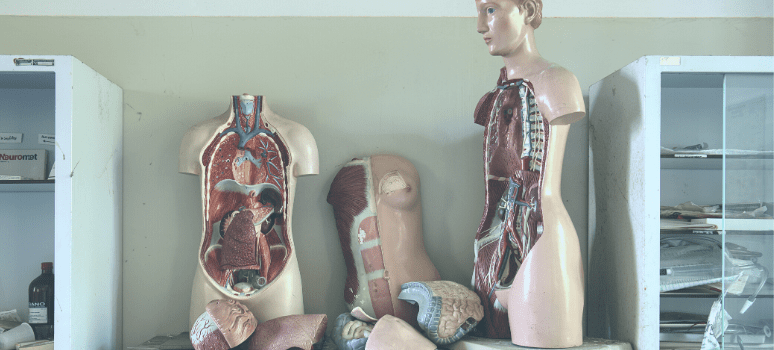
Muscles support us and help our organs stay in place and perform their functions, but what happens when they weaken? Numerous autoimmune diseases affect this system of the body.
Atrophy, weakness, pain... are some of the muscle symptoms of autoimmune diseases. Although not all pathologies of this type primarily affect our muscles, in many cases we lose the ability to move or find ourselves with less strength.
However, there are others autoimmune diseases directly affecting the muscular system and may even immobilise the patient.
In any case, our muscles are the target of numerous pathologies, whether genetic or autoimmune. The difficult to diagnose this type of illness and the frequency with which other illnesses leave us feeling tired.These are aspects that prevent patients from leading a normal life and carrying out day-to-day activities.
Autoimmune diseases affecting the musculature
When our immune system fails and attacks to the body's own tissues and cells, or when a genetic disease is "activated", the pathological processes that may mainly involve the musculature.
Some of the diseases that affect our musculature are:
BECKER MUSCULAR DYSTROPHY
This is a rare, genetically-based disease, which progressively weakens and reduces the body's musclesespecially of the legs and pelvis.
The first signs of weakness usually appear in then children between 10 and 13 years old and it is from the age of 15 or 16 that it can cause walking problems. Gradually, the disease can affect the hips, shoulders or heart muscles.
Although the incidence is low, this disease is especially difficult because it prevents you from climbing stairs, playing sports or lifting weights.
The cause of this disease is a a genetic alteration affecting a protein: dystrophin. This substance, which is defective in people with the disease, prevents muscle cells from recovering so that when any cells are damaged, they die and are replaced by fat and scar tissue. And it prevents movement.
Yes affects men more than women is because they have only one X chromosome and girls have two. Therefore, if a girl has an altered gene, she has the capacity to generate dystrophin.
This disease, which resembles Duchenne dystrophy, has no cure. Current therapies are based on orthopaedics and physical treatment. that allows for stretching and mobilisation of muscles.
MYASTHENIA GRAVIS
Myasthenia gravis is a an autoimmune disease affecting striated or voluntary muscles. It is characterised, above all, by intense weakness after exercise and, although it improves with rest, it is a pathology that progressively evolves.
One of the first symptoms to appear is the weakness of the eyelids or vision double because myasthenia affects the muscles of the eyes. Later, this weakness can spread to the throat and neck muscles causing difficulty in speaking or swallowing.
One of the most serious manifestations is the weakness in the respiratory muscles which prevents the patient from breathing when having a symptomatic crisis and may require hospitalisation.
DERMATOMYOSITIS
This is an autoimmune disease that affects the striated or voluntary muscle and the skin. Among its muscular manifestations, notably weakness and pain.
Although more striking are the skin symptoms (with reddening of the skin, plaques or papules and purplish rash), muscle weakness is always present at the time of diagnosis.
Muscular symptoms are usually weak but there are often difficulties in walking or dressing and, less commonly, it affects the thoracic or abdominal musculature.
OTHER INFLAMMATORY MYOPATHIES
In addition to dermatomyositis, the polymyositis and myositis with inclusion bodies are pathologies that cause muscle weakness and inflammation in this tissue.
These diseases, on the other hand, are considered systemic because in addition to affecting the muscles, they affect the skin, lungs and other organs.
The poliomyositis is a pathology that, in addition to affecting the shoulder and hip muscles, causes pain and voice problems due to the weakness of the muscles in the throat.
In the myositis cWith inclusion bodies, weakness manifests itself in the wrists and fingers and atrophy in the muscles of the arms and legs. Even so, the first time a person thinks he or she may have this disease is because he or she falls with some frequency.
All of these myositis, in addition to muscle weakness, share symptoms such as the following difficulty in swallowing, speaking or breathing out, fatigue, fever and lack of appetite with consequent weight loss.
Autoimmune diseases with muscle symptoms
There are currently more than 80 autoimmune diseases listed. Many are considered rare diseases, but among the most common and well-known, there are three that particularly affect the musculature.
The Graves-Basedow disease affects the thyroid gland with inflammation and hyperactivity. In addition to muscle weakness, symptoms include excessive metabolic activity, redness and swelling of the skin, anxiety and other symptoms.
The multiple sclerosis is an autoimmune disease that affects the myelin in the nerves and presents with neurological, intestinal and muscular symptoms - numbness, weakness or lack of balance - among others.
The lupus affects collagen of the skin, bones, tendons and, in general, the protein that holds our connective tissue together. Among its most common symptoms is reddening of the skin, but muscle pain is also common.
Treatment of autoimmune diseases that affect the muscles
In many cases, the autoimmune disease has a genetic cause coupled with environmental triggers. Although the possibilities of gene therapy are increasing thanks to research, it is still an experimental form of treatment.
But we can act on the rest of the factors leading to the disease and on symptomatology, so that patients can recover their quality of life.
In the case of muscular diseases, it is about regaining elasticity and mobility, strength and use physical therapies that allow us to act even in the most serious cases, such as respiratory system involvement.
At Biosalud Day Hospital we are specialised in the treatment of chronic and autoimmune diseases causally, analysing what can cause each symptom and designing the most effective treatment for each patient.

